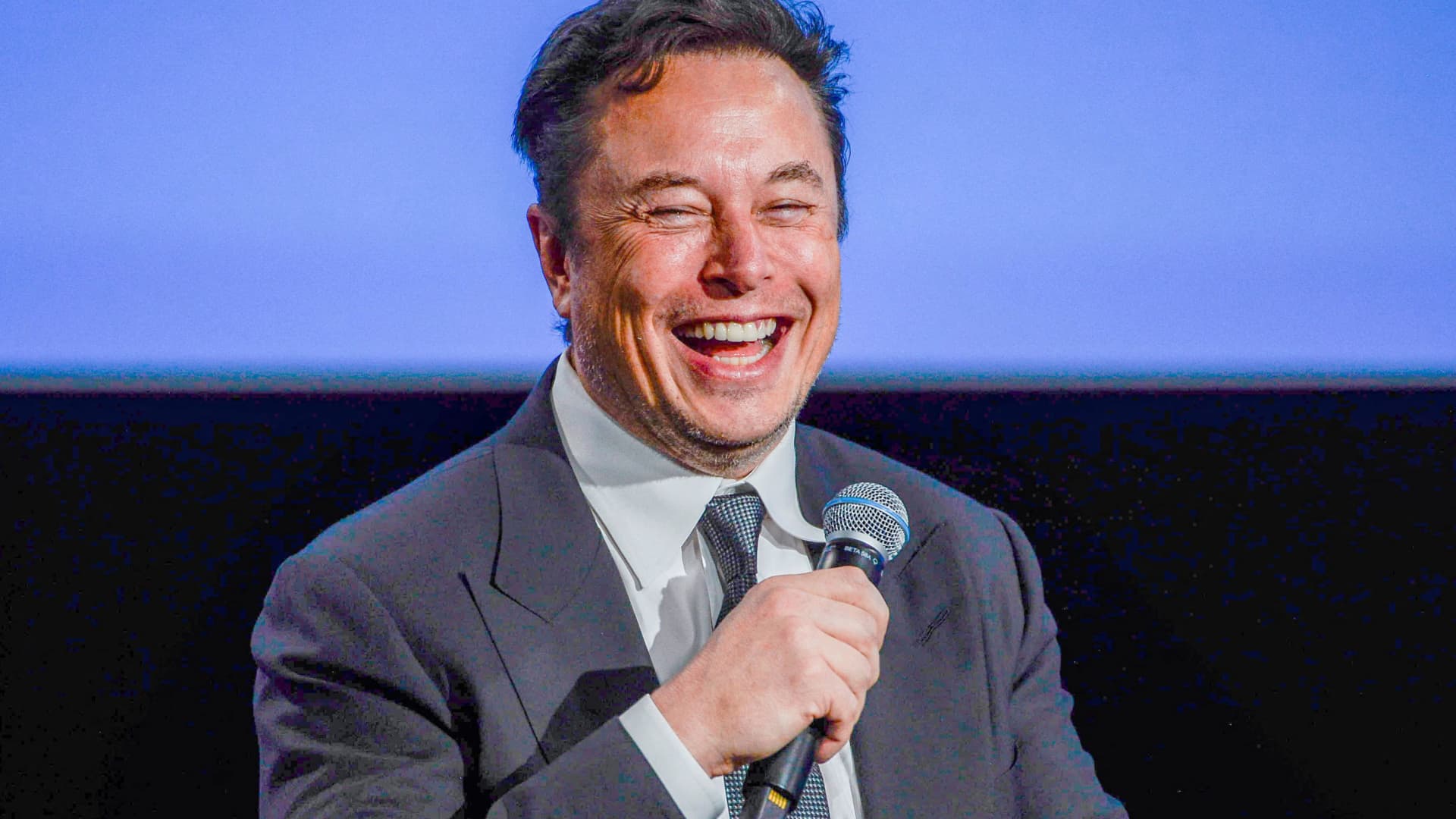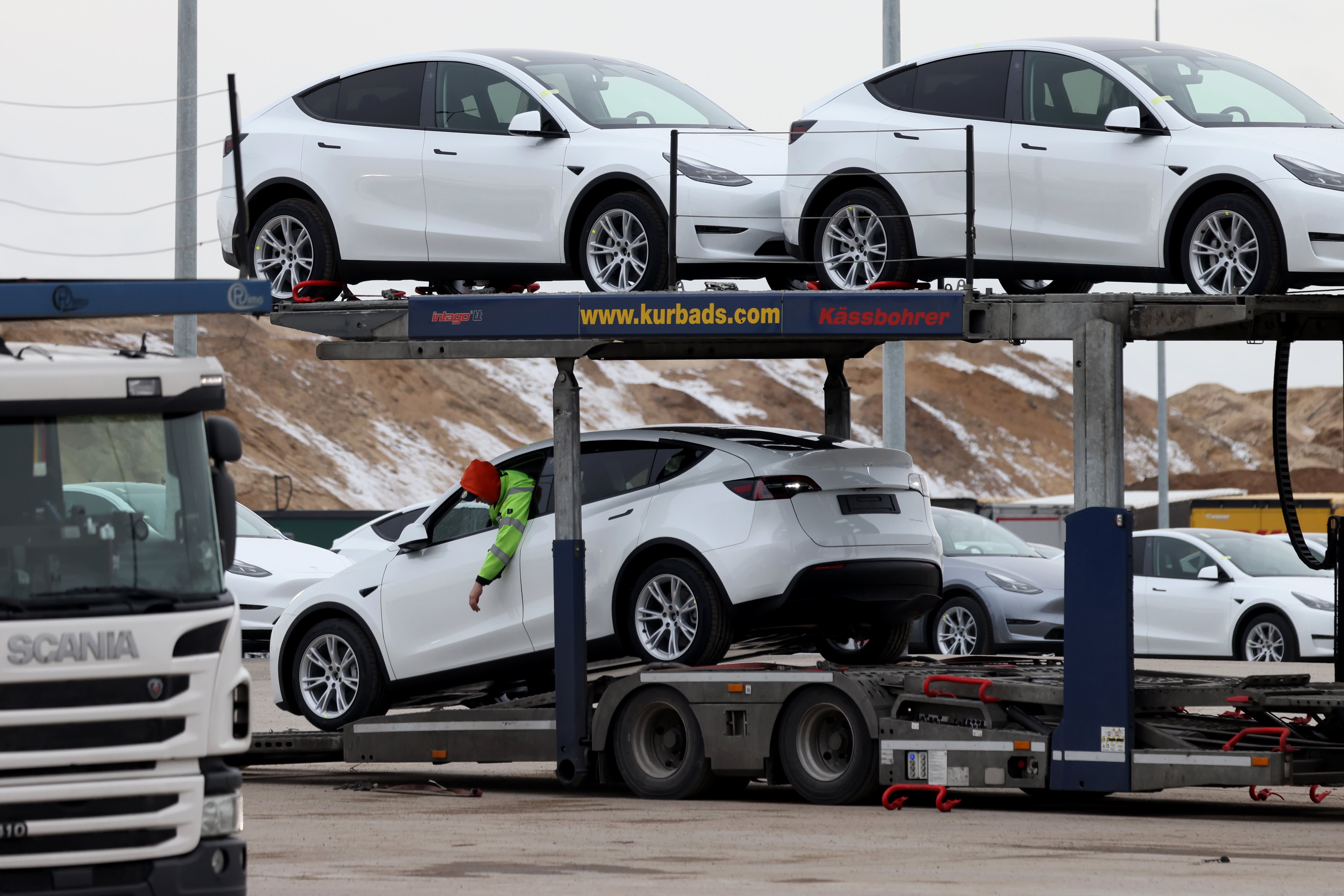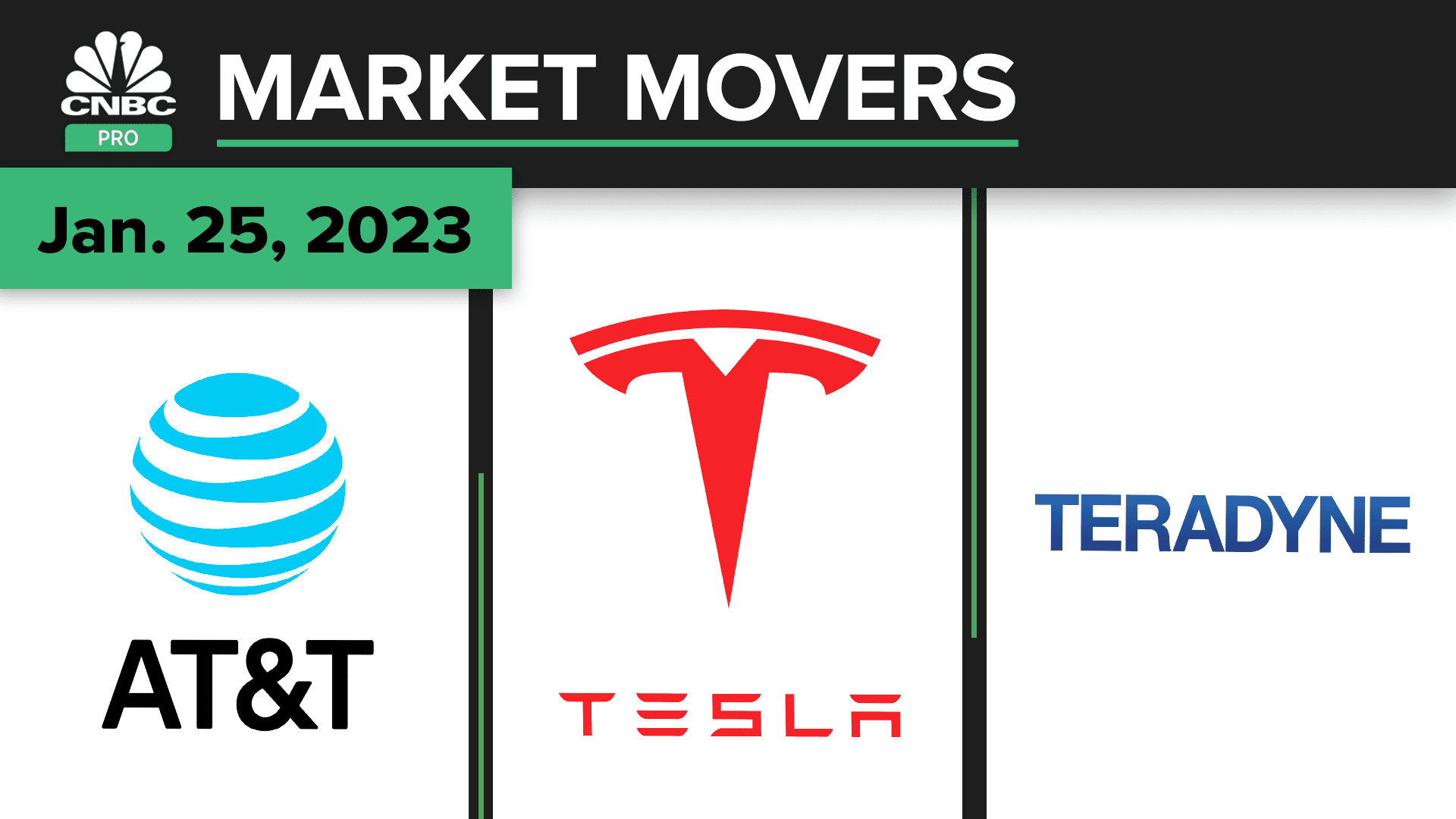Electric vehicle maker Tesla reported earnings after the bell, beating on both earnings and revenue. Shares rose more than 5% after hours after CEO Elon Musk said the company might be able to produce 2 million cars this year. Here are the results.
- Earnings (adjusted): $1.19 vs $1.13 per share expected, per Refinitiv
- Revenue: $24.32 billion vs $24.16 billion expected, per Refinitiv
In the year-ago quarter, Tesla reported revenue of $17.72 billion and adjusted earnings of $2.52 per share ($0.85 adjusted for an Aug. 2022 stock split).
related investing news
Tesla reported automotive revenue of $21.3 billion in the fourth quarter, representing 33% growth year-over-year. $467 million of that came from regulatory credits in the fourth quarter of 2022, up by nearly half from the prior year in the same period.
Automotive gross margins came in at 25.9%, the lowest figure in the last five quarters. Operating cash flow was down 29% from last year, and down 36% from last quarter, coming in at $3.28 billion.
In a shareholder deck, the company acknowledged that average sales prices have “generally been on a downward trajectory for many years,” and said “affordability” would be necessary for Tesla to grow into a company that sells multiple millions of cars annually.
In late 2022 and this year, Tesla cut prices on its cars around the world, upsetting customers in the US and China who recently bought new Teslas at higher prices, and triggering an instant decline in used Tesla prices in the US as well.
The price cuts seem to have sparked demand, however. Speaking on a call with shareholders and analysts on Wednesday, CEO Elon Musk said, “Thus far in January we’ve seen the strongest orders year-to-date than ever in our history. We’re currently seeing orders of almost twice the rate of production.”
One analyst asked Musk why Tesla’s guidance for production was just 1.8 million in 2023 after the company has been ramping up production at its new factories.
Musk replied, “We’re saying 1.8 because there always seems to be some friggin’ force majeure thing that happens somewhere on Earth. We don’t control if there’s earthquakes, tsunamis, wars, pandemics, etc. If it’s a smooth year, without some big supply chain interruption or massive problem we have the potential to do 2 million cars this year. I think there would be demand for that, too.”
The company did not issue new guidance, but reiterated in its earnings release, “We are planning to grow production as quickly as possible in alignment with the 50% compound annual growth rate target we began guiding to in early 2021.”
Musk also answered an analyst question about his purchase of Twitter by promoting the social media service as a great way to connect with customers.
“I’ve got 127 million followers. And it continues to grow rapidly. That’s that suggests that I’m reasonably popular. I might not be popular with some people. But for the vast majority of people, like the follower count speaks for itself. [I have one of] the most attractive accounts, social media accounts, maybe in the world, certainly on Twitter, and that actually predated the acquisition. So Twitter is actually an incredibly powerful tool for driving demand for Tesla. And I really encourage companies out there of all kinds automotive or otherwise to make more use of Twitter and to to use their Twitter accounts in ways that are interesting and informative, entertaining, and it will help drive sales just as it has with Tesla.”
Other earnings details
Services and other revenue for Tesla, which includes fees for out-of-warranty vehicle repairs, among other items, reached $1.6 billion in the quarter.
Revenue from energy generation and storage was up sequentially and year-over-year, reaching $1.31 billion. The cost of revenue for its energy division was high, though, at $1.15 billion in the fourth quarter.
Tesla said that it had installed the capacity — across all of its factories — to make 100,000 Model S and X vehicles annually, and 1.8 million Model Y and Model 3 vehicles.
Production capacity in Shanghai allows Tesla to manufacturer 750,000 Model 3 and Model Y electric cars annually, the company reported, whereas its first factory in Fremont, California, can make 100,000 of its higher-priced Model S and X vehicles, and 550,000 of its Model 3 and Y vehicles. Factories in Austin, Texas and near Berlin, Germany, each have capacity to make 250,000 Model Y vehicles annually, the company says.
Tesla also said that approximately 400,000 customers in North America now have the ability to test out its experimental, “FSD Beta” driver assistance system. The company recognized deferred revenue of $324 million for the quarter related to FSD, it said in a shareholder presentation.
This driver assistance system is only available to customers who purchase or subscribe to Tesla’s premium driver assistance package, marketed as FSD, or Full Self-Driving capability. Tesla does not make autonomous vehicles, or a driver assistance system that is safe to use without a driver behind the wheel, ready to steer and brake at all times. FSD Beta contains new software features that the company has not yet fully debugged.
The company also reiterated that its Cybertruck pickup is on track to start production this year in Texas.




